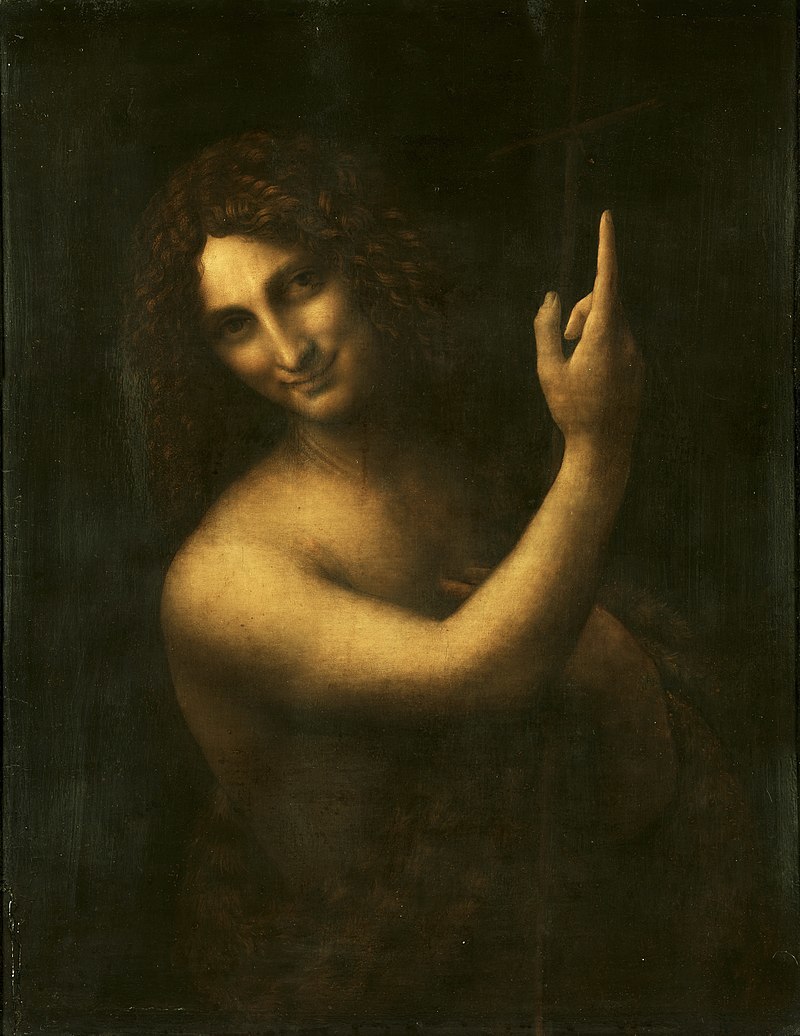Assistants and pupils
Gian Giacomo Caprotti da Oreno, nicknamed Salai or Il Salaino ("The Little Unclean One" i.e., the devil), entered Leonardo's household in 1490. After only a year, Leonardo made a list of his misdemeanours, calling him "a thief, a liar, stubborn, and a glutton", after he had made off with money and valuables on at least five occasions and spent a fortune on clothes. Nevertheless, Leonardo treated him with great indulgence, and he remained in Leonardo's household for the next thirty years. Salai executed a number of paintings under the name of Andrea Salai, but although Vasari claims that Leonardo "taught him a great deal about painting", his work is generally considered to be of less artistic merit than others among Leonardo's pupils, such as Marco d'Oggiono and Boltraffio. In 1515, he painted a nude version of the Mona Lisa, known as Monna Vanna. Salai owned the Mona Lisa at the time of his death in 1524, and in his will it was assessed at 505 lire, an exceptionally high valuation for a small panel portrait.
In 1506, Leonardo took on another pupil, Count Francesco Melzi, the son of a Lombard aristocrat, who is considered to have been his favourite student. He travelled to France with Leonardo and remained with him until Leonardo's death. Melzi inherited the artistic and scientific works, manuscripts, and collections of Leonardo and administered the estate.












0 comments
Sign in or create a free account